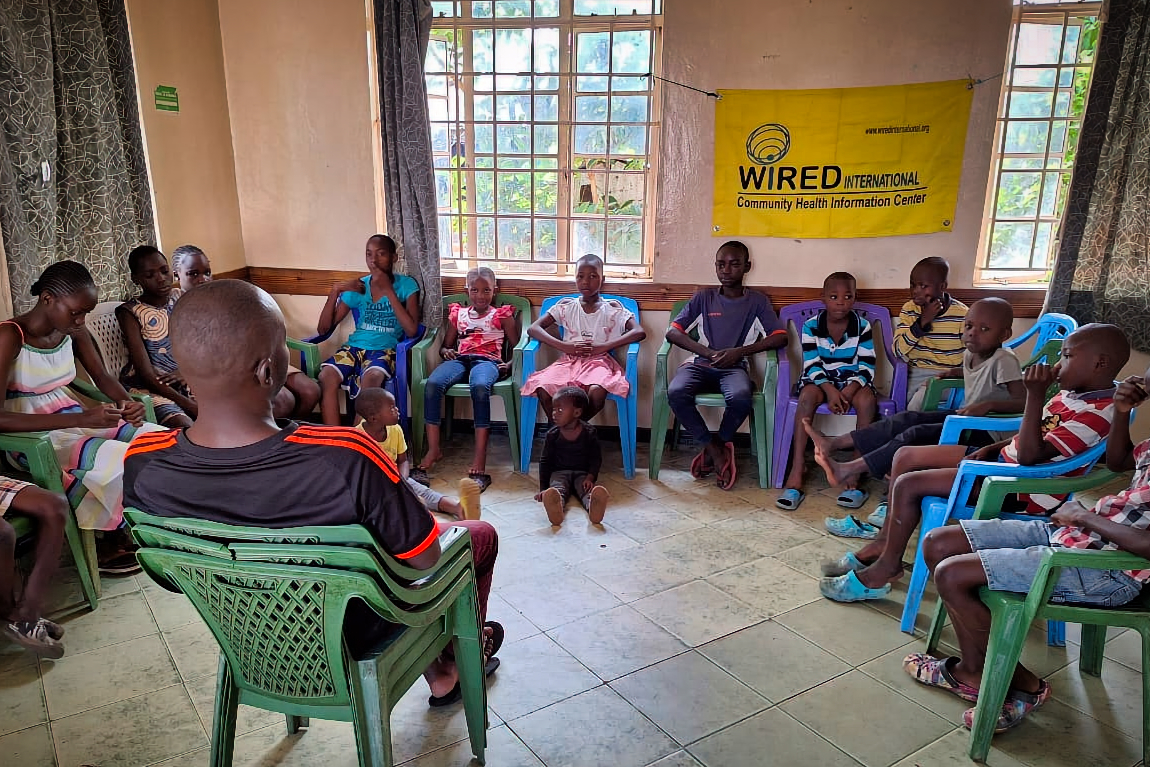Monthly Update from WiRED International’s Community Health Workers in Kenya
Providing Health Services Despite Challenges
By Allison Kozicharow; Edited by Elizabeth Fine
WiRED International’s paraprofessional team of community health workers (CHWs) completed another month of providing health education, diagnosis and referrals for the people of their region. Our CHWs carry on their vital work amid cholera outbreaks and endemic malaria not to mention conditions of civil unrest and historic floods following severe drought.
During the month of June 2023, 21 CHWs in Kisumu, Kenya, reached a total of 10,675 people with health services. Working 24 hours per week, each of the CHWs met with at least 86 patients a week, and the largest number seen in a week by a single CHW was 250, most of them in health training classes.
Overall, the top health issues for the month of June were as follows, in order of prevalence:
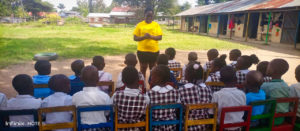 Malaria
Malaria- Tuberculosis
- HIV/AIDS
- Cholera
- Sexually transmitted diseases
- COVID-19
- Cancer
- Reproductive health
An ordinary day is full of challenges for WiRED’s small team of CHWs. They not only work amid hardships but successfully address and monitor the health needs of communities that otherwise have little or no access to health care.
Learn more here about WiRED’s Health Screening Clinic Program, a valuable community health innovation that significantly advances the CHW team’s contributions to improving the health of the neediest people in the slums of Kisumu. Stay tuned for further coverage of the program’s progress.
CHW Training Update
WiRED views CHW training as an ongoing process. Accordingly, we have carefully designed the CHW program to ensure that people on the CHW teams stay current in their knowledge of community health issues and continually expand their skills. One way they accomplish this is through an ongoing continuing medical education (CME) program that they complete online. This year, in early September, the CHWs will return to the classroom for 40 hours of training on First Aid Critical Care (FACC). CHWs already are competent in basic first aid; but this professional development course provides a considerable upgrade in their understanding of trauma assessment, stopping bleeding, CPR, burns, broken bones and much more. This FACC training is another means by which CHWs advance their expertise, making them ever more valuable to the people in their communities.
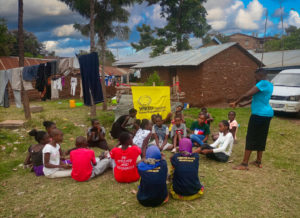
Stories from the field as reported this month by WiRED CHWs
Diagnosing Breast Cancer
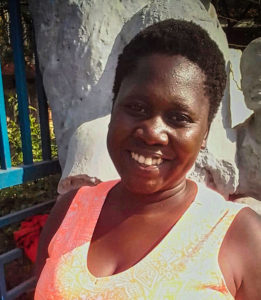 I was working in the field and met a young woman who had a lump on the breast that was producing a discharge. She said she thought it was just a boil, and it didn’t bother her. She thought she could keep squeezing it, and it would go away. What caught my attention was that she said it started as a pimple, and it kept on growing over the year. Now it was a painful lump. I did not believe it was just a boil and told her to go for free cancer screening. She went and was diagnosed with breast cancer and was admitted to the clinic for treatment. She reported that the treatment is painful, but she is continuing it.
I was working in the field and met a young woman who had a lump on the breast that was producing a discharge. She said she thought it was just a boil, and it didn’t bother her. She thought she could keep squeezing it, and it would go away. What caught my attention was that she said it started as a pimple, and it kept on growing over the year. Now it was a painful lump. I did not believe it was just a boil and told her to go for free cancer screening. She went and was diagnosed with breast cancer and was admitted to the clinic for treatment. She reported that the treatment is painful, but she is continuing it.
—CHW Bunnyce Atieno
Educating My Community about Sexually Transmitted and Urinary Tract Infections
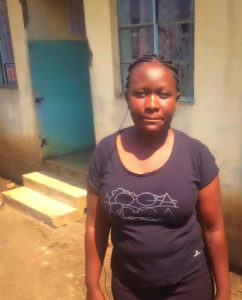 As I was making my daily health session in my community I came across a group of women who were complaining about itching in their private parts. In my session I explained to them all about the different types of sexually transmitted and urinary tract infections. I explained that having unprotected sex with infected people can cause these infections. After a long discussion I advised them to seek medication and practice prevention and good hygiene. During my follow-up with the women I found them in better health, and they felt so happy and empowered by the knowledge they gained from me about these infections.
As I was making my daily health session in my community I came across a group of women who were complaining about itching in their private parts. In my session I explained to them all about the different types of sexually transmitted and urinary tract infections. I explained that having unprotected sex with infected people can cause these infections. After a long discussion I advised them to seek medication and practice prevention and good hygiene. During my follow-up with the women I found them in better health, and they felt so happy and empowered by the knowledge they gained from me about these infections.
— CHW Lency Mmbone
Being a CHW
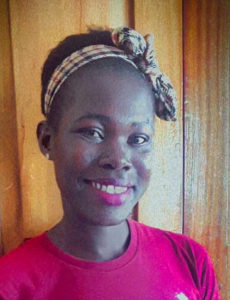 Working as a CHW has given me a different status in the community. Some people even refer to me as “teacher;” some children call me “mother.” I discuss many health topics with my community. For example, I talk with teenagers about mental health, which is a serious problem in our area. People feel stigmatized and discriminated against when they share or seek help. I counseled them to challenge stigma and promote understanding and compassion. Another issue is drug abuse, which is rampant among the youth here. When I talk with young girls and boys who are abusing drugs, I see that some of them are ready to change and be good citizens in the community. I continue to advise them against drugs, and they listen.
Working as a CHW has given me a different status in the community. Some people even refer to me as “teacher;” some children call me “mother.” I discuss many health topics with my community. For example, I talk with teenagers about mental health, which is a serious problem in our area. People feel stigmatized and discriminated against when they share or seek help. I counseled them to challenge stigma and promote understanding and compassion. Another issue is drug abuse, which is rampant among the youth here. When I talk with young girls and boys who are abusing drugs, I see that some of them are ready to change and be good citizens in the community. I continue to advise them against drugs, and they listen.
— CHW Carren Osomo

